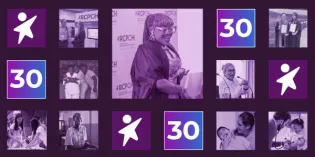
Children and young people around the four countries of the UK with gastrointestinal, liver and nutritional disorders face a wide variation of support says the British Society of Paediatric Gastroenterology, Hepatology and Nutrition (BSPGHAN) and the Royal College of Paediatrics and Child Health (RCPCH).
The paediatric gastroenterology, hepatology and nutrition (PGHAN) audit assesses whether children and young people requiring specialist care receive consistently high-quality treatment. The report is the result of a landmark collaboration between the RCPCH and BSPGHAN as an affiliated Speciality Group and it reveals that while there are some good pockets of care with enough staff to meet children’s needs, more needs to be done to improve access and support for all children, and it makes eleven recommendations to the whole system to ensure no child is left behind and without a team to support their needs.
Recommendations cover five domains of care. These are:
- Operational Delivery Networks
- Workforce Requirements within a Network
- Network Governance
- Provision of PGHAN Care within the UK
- Recovery of PGHAN Services following the COVID‐19 Pandemic
The report takes data from 107 centres that provide PGHAN care for Children and young people `England, Wales, Scotland and Northern Ireland, made up of:
- 27 Specialised Gastroenterology and Nutrition Centres
- 3 Hepatology Centres, and
- 77 Non-Specialised Centres
Key findings from the report highlight:
- 37% (10/27) of Specialist Centres in Paediatric Gastroenterology and Nutrition employ less than 3 WTE paediatric gastroenterologists. This limits the ability to provide a full provision of services, and limits the ability to provide around the clock care and advice to hospitals within their network.
- 24/7 availability for specialised PGHAN advice is not provided in all geographical areas in the UK.
- 81% (22/27) of Specialist Gastroenterology and Nutrition centres perform out of hours endoscopy for children and of these, 41% (9/22) had formally rostered out of hour emergency endoscopy. 67% (2/3) of Specialist Hepatology Centres had formally rostered out of hour emergency endoscopy provision.
- 78% (58/74) of non-specialised centres and 37% (11/30) of specialist centres did not have an allocated transition worker, to coordinate the transfer of a young person into adult care.
- 24% (18/75) of UK non-specialised centres declared that they did not work in a clinical network, and were therefore providing PGHAN care without formal referral pathways for care or advice.
- Only 7% (5/75) of non-specialised centres and 20% (6/30) of specialist centres were part of a formally designated and funded clinical network.
- 18% (14/77) of non-specialised centres reported having no consultant paediatrician with special interest in gastroenterology provision at their local centres.
- 100% (30/30) of all specialised centres reported that they had seen an increase in their provision of telehealth since the first wave of COVID-19 with 74% (20/27) of specialist gastroenterology and nutrition centres and 67% (2/3) specialist centres in hepatology now providing more than half of their clinics through telehealth or video clinics.
Dr Sue Protheroe, President of BSPGHAN said:
Following the publication of the PGHAN Quality Standards in 2017, we have undertaken this audit to describe best practice to improve health outcomes and the quality of life for children receiving care for gastroenterology, liver or intestinal disorders throughout the UK. We have a reputation for providing world leading PGHAN care and this audit underpins our status while highlighting where improvement is needed.
What is absolutely clear from our findings is that our teams are working extremely hard to provide holistic care for children and young people with these conditions. Yet more needs to be done as children still face variable staffing levels, and far from universal out of hours emergency provision.
Government, health systems and teams across the four countries of the UK should look at and reflect on these recommendations to make sure children and young people with conditions that are often life long, receive the very best pathways of care, at the start of their lives and throughout their paediatric journey of care to give them every opportunity to lead a full life.
Dr Camilla Kingdon, President of RCPCH said:
I am delighted that RCPCH has joined BSPGHAN to publish this landmark report on the care provided to children and young people with liver, gastrointestinal and nutritional disorders across the UK.
Ensuring we have access to accurate benchmark data is essential to advance services for children and young people, and we now have ten clear recommendations for improvement across the four countries of the UK.
As Governments in Westminster, Scotland, Wales and Northern Ireland consider their response to the pandemic, and supporting rebuilding NHS services, children and young people must be at the centre of decision making to ensure that no one gets left behind.
On the importance of networks and staffing, Dr John Fell, audit clinical lead, said:
We want to make high quality care delivered as standard across the four countries of the UK, and evidence shows effective, efficient, and equitable care, services are best arranged in formal designated networks with adequate staffing and skills reflecting the needs of the local populations. At present, only 7% (5/75) of non-specialised centres and 20% (6/30) of specialist centres are part of a formally designated and funded clinical network, with variable staffing levels, and far from universal out of hours emergency provision. We are calling on commissioners, health boards and managers to rectify the situation and ensure care meets the standards that children and young people deserve.
On funding and prioritising for the future, Dr Edward Gaynor, audit clinical lead, said:
Health Board and Trust managers should ensure that the full restoration of specialist PGHAN services following the COVID-19 pandemic is prioritised and to improve access and provide for long-term sustainability of services, longer term funding and commissioning arrangements are essential.
Read the full PGHAN audit report key findings and recommendations
Notes to editors
About BSPHGAN
- The British Society of Paediatric Gastroenterology, Hepatology and Nutrition (known as BSPGHAN) is the national, professional and academic society which represents specialty colleagues working for infants, children and young people with digestive and liver disorders.
- Membership stands at around 500 members, comprising consultants and specialist trainees in paediatric gastroenterology, hepatology and nutrition; affiliated health care professionals such as specialist dieticians, nurses, pharmacists, clinical psychologists and scientists.
About RCPCH
- The Royal College of Paediatrics and Child Health (RCPCH) is responsible for training and examining paediatricians, setting professional standards and informing research and policy. RCPCH has nearly 20,000 members in the UK and internationally.
- • We work to transform child health through knowledge, research and expertise, to improve the health and wellbeing of infants, children and young people across the world.
About the PHGAN audit
- In 2017, BSPGHAN and the RCPCH jointly developed the Quality Standards for Paediatric Gastroenterology, Hepatology & Nutrition (PGHAN).
- In 2020, BSPGHAN and the RCPCH undertook a national audit of paediatric gastroenterology, hepatology and nutrition (PGHAN), benchmarking services across the UK and the national provision of care against the 2017 PGHAN Quality Standards.
- The PGHAN audit is delivered by the Audits Team at the RCPCH, and its methodology and plan of work is overseen by a steering group comprised of representatives of the following organisations:
- British Society of Paediatric Gastroenterology, Hepatology and Nutrition
- British Association of Parental and Enteral Nutrition
- Coeliac UK
- Crohn’s & Colitis UK
- Crohn’s in Childhood Research Association
- The audit steering group is chaired by Dr John Fell, Lead Paediatric Gastroenterologist at the Chelsea and Westminster Hospital and Dr Ed Gaynor, Consultant in Paediatric Gastroenterology, Great Ormond Street Hospital (GOSH) as co-chair







